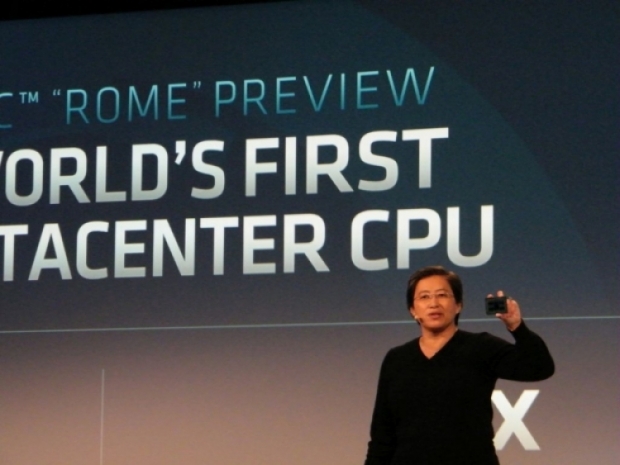AMD said that momentum for its EPYC processors in advanced science and health research continues to grow with new installations at Indiana University, Purdue University and CERN as well as high-performance computing (HPC) cloud instances from Amazon Web Services, Google, and Oracle Cloud.
AMD data centre and embedded systems group senior vice president and general manager Forrest Norrod said that the leading HPC institutions were increasingly using second generation AMD EPYC processors.
“Our AMD EPYC CPUs, Radeon Instinct accelerators and open software programming environment are helping to advance the industry towards exascale-class computing, and we are proud to strengthen the global HPC ecosystem through our support of the top supercomputing clusters and cloud computing environments.”
Four AMD EPYC powered supercomputers are now among the 50 highest-performance systems in the world and there are now ten AMD EPYC-powered supercomputers on the TOP500:
- Selene (No.7) an AMD EPYC 7742-based system in a DGX A100 SuperPOD platform from Nvidia,
- Belenos (No.30), one of the two BullSequana XH2000 supercomputers at Météo-France, the French national meteorological service powered by 2nd Gen AMD EPYC processors,
- Joliot-Curie (No.34), moved up the list based on a new submission for the BullSequana XH2000 system using 2nd Gen AMD EPYC™ processors at GENCI, the French national high-performance computing organization,
- Mahti (No. 48), a 2nd Gen AMD EPYC processor powered BullSequana XH2000 supercomputer at Finland’s Center for Science Information Technology,
Two universities announced new research supercomputing systems powered by AMD EPYC processors in Dell EMC PowerEdge servers.
Indiana University will deploy Jetstream 2, an eight-petaflop distributed cloud computing system powered by upcoming 3rd Gen AMD EPYC processors. This system will be used by researchers in a variety of fields such as AI, social sciences, and COVID-19 research. AMD EPYC processors already power Big Red 200 at the Indiana University campus.
David Hancock, Director in Research Technologies, affiliated with the Pervasive Technology Institute at Indiana University said: “Jetstream 2 bundles computation, software and access to storage for individuals and teams of researchers across an array of areas of research.
“With the next generation AMD EPYC processor, Jetstream 2 will provide 8 petaflops of cloud computing power, giving more access to high-end technologies to enable deep learning and artificial intelligence techniques.”
Purdue University will deploy Anvil, a supercomputer powered by next generation AMD EPYC processors, which will provide advanced computing capabilities to support a wide range of computational and data-intensive research. AMD EPYC will also power Purdue’s latest community cluster “Bell”, scheduled for deployment early this autumn. CERN, the largest particle physics laboratory in the world, recently selected 2nd Gen AMD EPYC processors in Gigabyte servers to harness the massive amounts of data from their latest Large Hadron Collider (LHC) experiment to rapidly detect subatomic particles known as beauty quarks.




